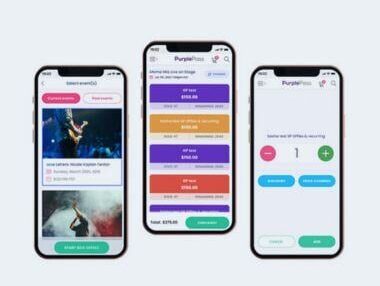Planning an Event Without Wi-Fi: Essential Considerations and Strategies
Planning an event without Wi-Fi can seem daunting, especially in an age where internet connectivity is almost a given. However, many events, such as outdoor festivals, remote weddings, or rustic retreats, can thrive without the need for Wi-Fi.
This guide will help you navigate the challenges and opportunities of hosting a successful event without relying on internet connectivity. We'll cover various aspects, from ticketing and scanning to payment processing and attendee engagement, ensuring that your event runs smoothly from start to finish.

Understanding the Challenges
The first step in planning an event without Wi-Fi is understanding the challenges you might face. These include:
- Ticketing and Check-in: Efficiently managing ticketing and attendee check-in without an online system.
- Payment Processing: Facilitating cashless transactions without internet-based payment systems.
- Communication: Ensuring effective communication among staff and with attendees.
- Entertainment and Presentations: Managing digital entertainment or presentations that usually require internet access.
Pre-Event Preparations
1. Ticketing and Check-in
For ticketing and check-in, you can use offline solutions. Purplepass offers several equipment options that do not rely on Wi-Fi:
- Boca Printers: These require a power source and can connect via USB. They are reliable for printing tickets on-site.
- Epson Printers: Similar to Boca printers, these require a power source and can connect via USB or Bluetooth. They provide flexibility in printing tickets and receipts.
- Barcode Scanners: These devices require a computer or laptop and a USB connection. They are essential for scanning tickets and managing attendee entry efficiently.
Ensure that all devices are fully charged and that you have backup power solutions like portable generators or battery packs.
2. Payment Processing
Offline payment processing is crucial for events without Wi-Fi. Options include:
- Cash Drawers: These are connected to receipt printers and can handle cash transactions efficiently.
- Credit Card Readers and mPOS: Mobile Point of Sale systems require batteries and can work with data connections. Ensure you have a reliable cellular data plan if Wi-Fi is unavailable. Payment processing devices like Square or PayPal offer offline transaction capabilities that sync once a connection is restored.
On-Site Logistics
1. Power Management
Power is a critical component for any event. Without Wi-Fi, ensuring that all devices are powered and operational is essential. Consider the following:
- Portable Generators: These provide a reliable power source for remote locations.
- Battery Packs and Power Banks: These can keep smaller devices like mPOS systems and phones charged throughout the event.
- Redundant Power Sources: Always have a backup in case of primary power source failure.
2. Communication
Effective communication among staff is vital for smooth operations. Options include:
- Two-Way Radios: These are highly reliable and do not require internet connectivity.
- Offline Messaging Apps: Some apps allow for local Bluetooth or direct device-to-device communication.
- Pre-Event Briefings: Ensure all staff are thoroughly briefed and have clear instructions to reduce the need for real-time communication.
Enhancing Attendee Experience
1. Entertainment and Presentations
Without Wi-Fi, pre-download any digital content needed for the event:
- Music and Videos: Ensure playlists and videos are downloaded to local devices.
- Presentations: Store presentations on USB drives or local storage devices.
- Interactive Elements: Consider offline interactive activities like traditional games, scavenger hunts, or craft stations.
2. Informational Signage
Clear and informative signage can help attendees navigate the event without needing to ask for directions or look up information online. Use printed maps, schedules, and FAQs posted around the venue.
Post-Event Considerations
After the event, ensure all data collected offline (such as ticket scans or sales data) is synced back to your online systems. This can be done once a reliable internet connection is available. Review and analyze the data to assess the event's success and identify areas for improvement.
Conclusion
Planning an event without Wi-Fi requires careful preparation and strategic thinking. By understanding the challenges and leveraging the right tools and practices, you can host a successful event that meets your attendees' needs and expectations. Focus on robust pre-event planning, reliable on-site logistics, and clear communication to ensure your event runs smoothly from start to finish.
For more detailed equipment options and recommendations, you can refer to resources provided by Purplepass and other event management platforms. These tools will help you create a seamless experience, even in the absence of internet connectivity.






